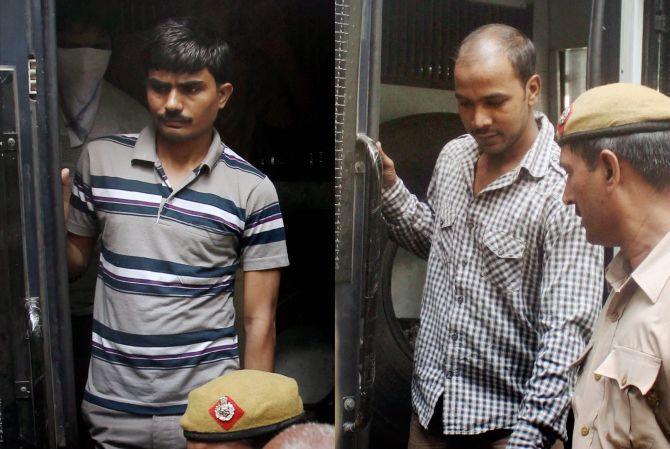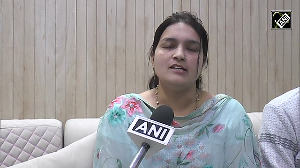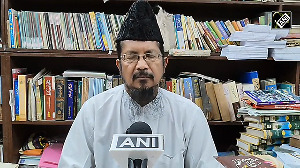
The convicts in the sensational December 16, 2012 Nirbhaya gangrape and murder case now face the gallows, after the Supreme Court on Monday held that they have failed to make out a case for grant of any relief from the death sentence.
A bench headed by Chief Justice Dipak Misra dismissed the review petitions filed by three of the four convicts Mukesh (31), Pawan Gupta (24) and Vinay Sharma (25), saying no ground has been made out by them for a review of the top court verdict of May 5 last year.
The bench, also comprising Justices R Banumathi and Ashok Bhushan, said these convicts have failed to point out any "error apparent on the face of record" in the judgement and they were given elaborate hearing during their appeal against the Delhi high court judgement.
"In these review petitions, no ground has been made out which may furnish any ground to review the judgment. We, thus, find no merit in these review petitions and consequently, the review petitions are dismissed," the bench said.
The fourth death row convict, Akshay Kumar Singh (33), has not yet filed a review petition against the apex court judgement.
One of the accused in the case, Ram Singh, had allegedly committed suicide in the Tihar Jail here on March 11, 2013.
The 23-year-old paramedic student was gangraped on the intervening night of December 16-17, 2012 inside a running bus in South Delhi by six persons and severely assaulted before being thrown out on the road. She had succumbed to injuries on December 29, 2012 at Mount Elizabeth Hospital in Singapore.
Reacting to the apex court verdict today, the parents of the 23-year-old victim said their faith in the judiciary was reinstated and they hoped to get justice.
"The Supreme Court upholding its verdict is a strong message to those who commit such heinous crimes. Our faith in the judiciary has been reinstated. I appeal to the Prime Minister to take concrete steps against atrocities towards young girls and women," Asha Devi, the mother of the victim, said.
However, in a statement, human rights body Amnesty International India said that executions do not eradicate violence against women and government must allocate adequate resources for effective implementation of laws, improve conviction rates and ensure certainty of justice in all cases.

"Unfortunately executions do not eradicate violence against women. There is no evidence to show that death penalty acts as a deterrent for sexual violence or any other crime. Instead, the government must allocate adequate resources for the effective implementation of laws, improve conviction rates and ensure certainty of justice in all cases," Asmita Basu, Amnesty International India's Programmes director, said.
The apex court in its May 5, 2017 verdict had upheld the capital punishment awarded to these convicts by the Delhi high court and the trial court in the case.
A juvenile, who was among the accused, was convicted by a juvenile justice board. He was released from a reformation home after serving a three-year term.
In its judgement last year, the apex court had said that the "brutal, barbaric and diabolic nature" of the crime could create "tsunami of shock" to destroy a civilised society.
It had said that the accused had found the victim as "an object for enjoyment" and "ravish her as they liked, treat her as they felt" to get "gross sadistic and beastly instinctual pleasure" and such acts were "bound to shock the collective conscience".
The bench had said that the instant case had revealed "brutal, barbaric and diabolic nature of the crime" which was "evincible from the acts committed by accused".
The "loathsome bestiality of passion ruled the mindset of the appellants (convicts) to commit a crime which can summon with immediacy 'tsunami' of shock in the mind of the collective and destroy the civilised marrows of the milieu in entirety," the court had said.










 © 2025
© 2025